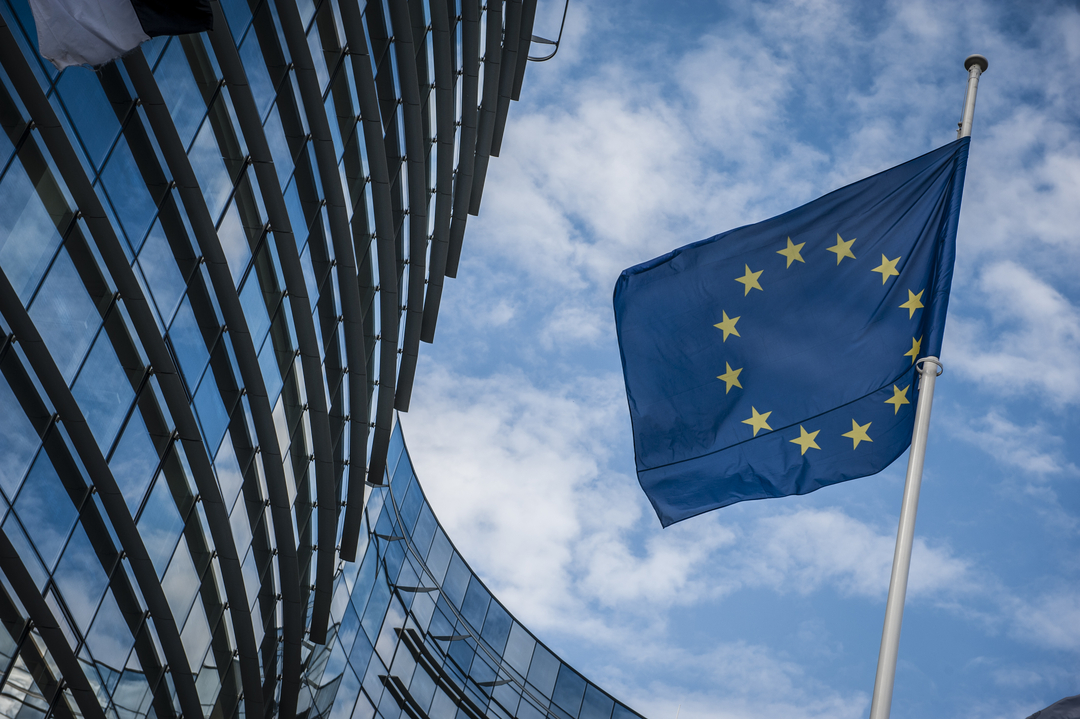

Image credit: European Commission
The European Commission has proposed on Wednesday to pool resources and expertise from the EU’s 27 countries for a joint cyber unit.
The announcement says this Joint Cyber Unit will combat online criminals amid a spate of high profile hacks in Europe and worldwide.
In December last year for example, the European Union’s medicine regulator, the European Medicines Agency (EMA) was hacked, and valuable documentation concerning the Pfizer/BioNTech Covid-19 vaccine was stolen.
In response to this and many other incidents, the European Commission has outlined its vision to build a new Joint Cyber Unit to tackle the rising number of serious cyber incidents.
Essentially, this EU cyber unit will allow national capitals hit by cyberattacks to ask for help from other countries and the EU. This includes assistance via rapid response teams that can swoop in and fight off hackers in real time.
The plan would also set up a platform for cybercrime police, cyber agencies, diplomats, military services and cybersecurity firms to coordinate responses and share resources.
All relevant actors in the EU need to be prepared to respond collectively and exchange relevant information on a ‘need to share’, rather than only ‘need to know’, basis, explained the EC.
It explained that the Joint Cyber Unit will act as a platform to ensure an EU coordinated response to large-scale cyber incidents and crises, as well as to offer assistance in recovering from these attacks.
The participants will be asked to provide operational resources for mutual assistance within the Joint Cyber Unit.
The EC said it will build the Joint Cyber Unit through a gradual and transparent process in four steps, in co-ownership with the Member States and the different entities active in the field.
Funds raised from member states will be used to build the physical and virtual platform, establish and maintain secure communication channels, as well as improve detection capabilities.
Additional contributions, especially to develop Member States’ cyber-defence capabilities, may come from the European Defence Fund, the EC said.
“Cybersecurity is a cornerstone of a digital and connected Europe,” explained Margrethe Vestager, executive VP for a Europe Fit for the Digital Age. “And in today’s society, responding to threats in a coordinated manner is paramount. The Joint Cyber Unit will contribute to that goal. Together we can really make a difference.”
“The Joint Cyber Unit is a very important step for Europe to protect its governments, citizens and businesses from global cyber threats,” added Josep Borrell, high representative of the Union for foreign affairs and security policy.
“When it comes to cyberattacks, we are all vulnerable and that is why cooperation at all levels is crucial,” said Borrell. “There is no big or small. We need to defend ourselves but we also need to serve as a beacon for others in promoting a global, open, stable and secure cyberspace.”
At least one security expert has said it was gratifying to see the political attention cyber attacks are now getting, especially considering the recent G7 summit and last week’s meeting between US President Joe Biden and Russia’s President Vladimir Putin.
“When considering today’s threat landscape, especially ransomware which impacts both government and private organisations, the political attention cyber attacks are getting today is most welcomed,” explained Jens Monrad, director, EMEA at Mandiant Threat Intelligence.
“However, it remains to be seen how effective it will be when it comes to a joint task force deploying response teams across the EU,” said Monrad. “Today, many EU countries still control their national security, and even within agreed EU treaties, there are exempts on law enforcement collaboration.”
“There should be an even stronger focus on private-government collaboration, similar to what we have observed in the United States,” Monrad added. “The rapidly evolving cyber threats and the future threat landscape calls for a more vital private-government partnership where information on threats can be shared and communicated effectively across EU member states.”
“When we look at the current cyber threat landscape, it is genuinely borderless and a global challenge,” added Monrad. “There is certainly a need for more political involvement to address the fact that some of the most impactful cyber threats like ransomware still seem to operate with impunity from countries that appear to offer a degree of safe harbouring as long as the cybercriminals do not target their own country or region.”
Last month, British Foreign Secretary Dominic Raab publicly warned Russia it cannot continue to shelter criminal gangs carrying out ransomware attacks on Western nations.
Former board member and respected chip industry veteran Lip-Bu Tan appointed to lead troubled US…
MPs demand secret High Court hearing be held in public, after government had ordered a…
Consequences. As Musk and DOGE continues slash-and burn at federal agencies, FTC asks for trial…
Report from CMA's independent inquiry group concludes mobile browser markets not working well, but cloud…
Elon Musk turns White House driveway into Tesla showroom to allow Donald Trump to choose…
TSMC reportedly pitches a joint venture with big name chip players for Intel's chip-making Foundry…